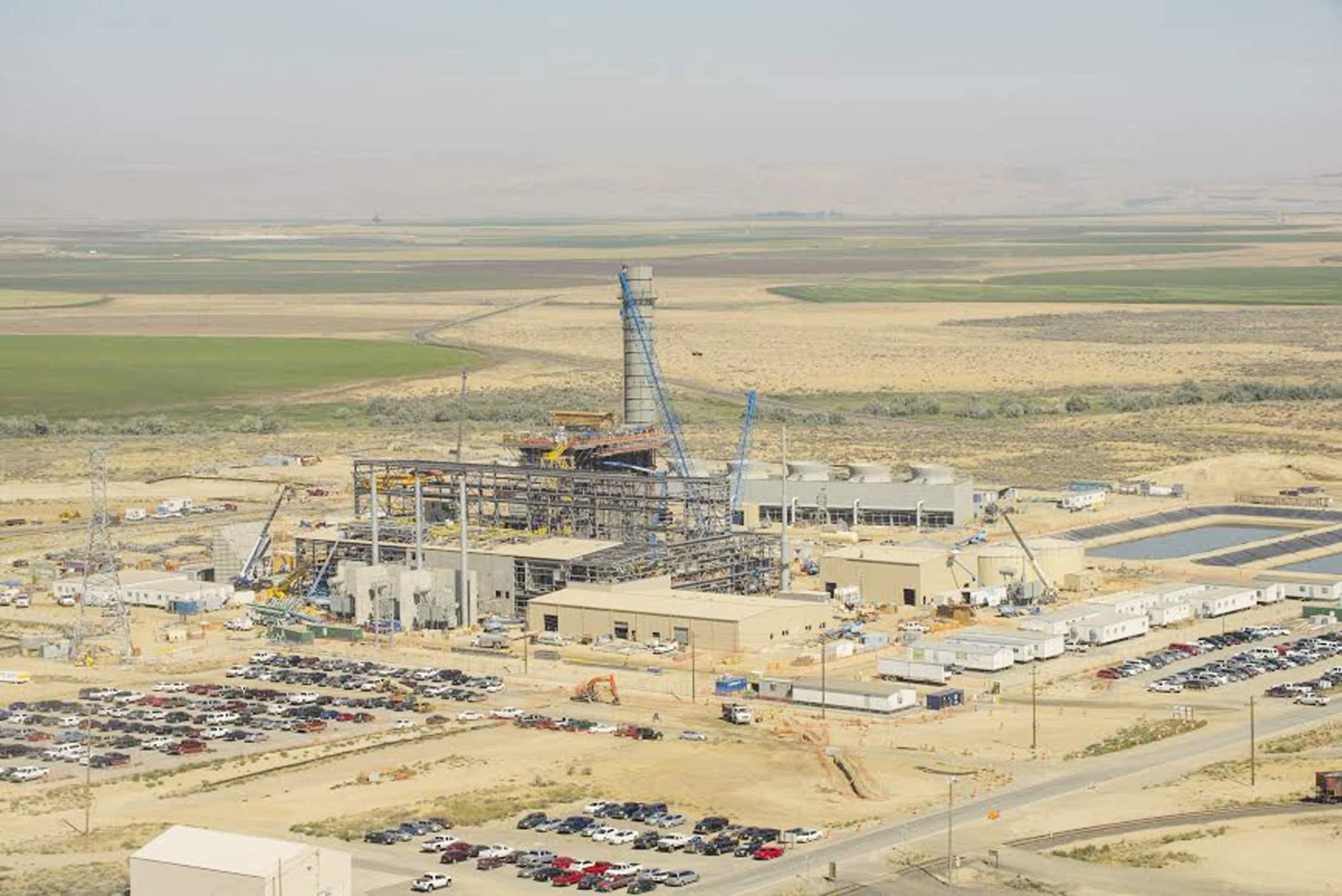
A requested permit would dramatically increase the amount of pollution PGE could emit from its natural gas-fired plant in Boardman, Oregon.
Michael Durham
Oregon air quality regulators are holding a statewide hearing on proposed federal changes to environmental law.
Usually states don't hold public hearings on national rule changes. But the Department of Environmental Quality said Oregonians were not given an adequate opportunity to provide feedback on lower vehicle fuel economy standards and a loosening of power plant emission targets.
“We thought this is such an impactful set of standards and regulatory actions that the public here should have the opportunity to weigh in appropriately,” said Ali Mirzakhalili, air quality administrator for the DEQ.
The Trump administration met minimum requirements for public hearings.
"We value the public's input as we engage in this process in an open, transparent manner," said acting EPA Administrator Andrew Wheeler in a statement when the fuel economy proposal was announced in August.
But the EPA faced wide criticism that there were not enough in-person opportunities for communities.
Regulators held three hearings nationwide on new fuel efficiency standards (the Safer Affordable Fuel-Efficient Vehicle Rule) — one each in Michigan, Pennsylvania and California. They also held one hearing in Chicago on the plan to replace the Clean Power Plan, which set emission limits on coal-fired power plants.
The federal agencies denied requests to hold a hearing in the Pacific Northwest and to extend the comment periods in a meaningful way. The closest site for Oregonians to give live testimony was in Fresno, California.
“The fact that they don’t want to hear from people around issues that affect our health so deeply really hasn’t been a surprise,” said Kelly Campbell, director of Oregon Physicians for Social Responsibility.
The Oregon Department of Environmental Quality is holding a hearing Tuesday in Portland. The state says it will submit any testimony given to the EPA in time to meet the public comment deadlines for the rules.
“We are organizing people to go testify at the hearing and really appreciate that DEQ is creating this opportunity for Oregonians to learn about this issue and make our voices heard,” Campbell said.
The current air quality measures were put in place by the Obama administration to help the United States meet international climate targets. Since taking office, the Trump administration pulled out of pledges made as part of the Paris Agreement on climate change. It also called the Clean Power Plan “overly prescriptive and burdensome.”
Public comment from Oregonians already submitted online or in writing have largely opposed the current administration’s replacement for the Clean Power Plan — what the EPA calls the Affordable Clean Energy rule. The same holds true for the new fuel economy standards, although far fewer comments have been submitted.
It’s a reasonable assumption that additional comment given at the DEQ hearing in Portland will skew similarly.
Related: Gov. Kate Brown Wants Environmental Rules Upheld In Oregon When Feds Roll Them Back
Oregon regulators said the Trump fuel economy and emissions proposals will make it much more difficult for the state to meet its own climate change goals. In 2007, Oregon set goals of reducing emissions to 10 percent below 1990 levels by 2020. It pledged to be 75 percent below 1990 levels by 2050.
“It just interferes with our ability to meet those targets,” Oregon DEQ’s Mirzakhalili said.
Oregon only has one coal-fired power plant, which will stop using coal in 2020, according to owner PGE. Because of this, throwing out the Clean Power Plan is not likely to have a significant direct effect on Oregon’s air quality. But Mirzakhalili said the proposed replacement incentivizes using natural gas, and that could increase Oregon’s emissions.
But the real challenge for the state’s emissions goals would be the rollback of vehicle fuel economy standards. Under the Clean Air Act, states can either use federal standards or California’s standards, which are more stringent. Oregon follows California’s rules.
The Obama administration had increased the national fuel economy standards, but now the Trump administration wants freeze those increases and take away the California option.
“Our proposal aims to strike the right regulatory balance based on the most recent information and create a 50-state solution that will enable more Americans to afford newer, safer vehicles that pollute less,” said acting EPA administrator Wheeler.
Transportation is the largest single source of greenhouse gas emissions in Oregon.
“There are three legs to the stool of transportation related emissions: fuel quality, the number of miles we drive and the emissions standards,” Mirzakhalili said. “They’re taking at least one of the three things away from us, and it’s a really important one.”
The public hearing will take place 5–7 p.m., Tuesday, Oct. 23 at the Multnomah County Board Room in Portland.
Public comment on the Safer Affordable Fuel-Efficient Vehicle rule closes Oct. 26. Comment on the Affordable Clean Energy rule closes Oct. 31.
